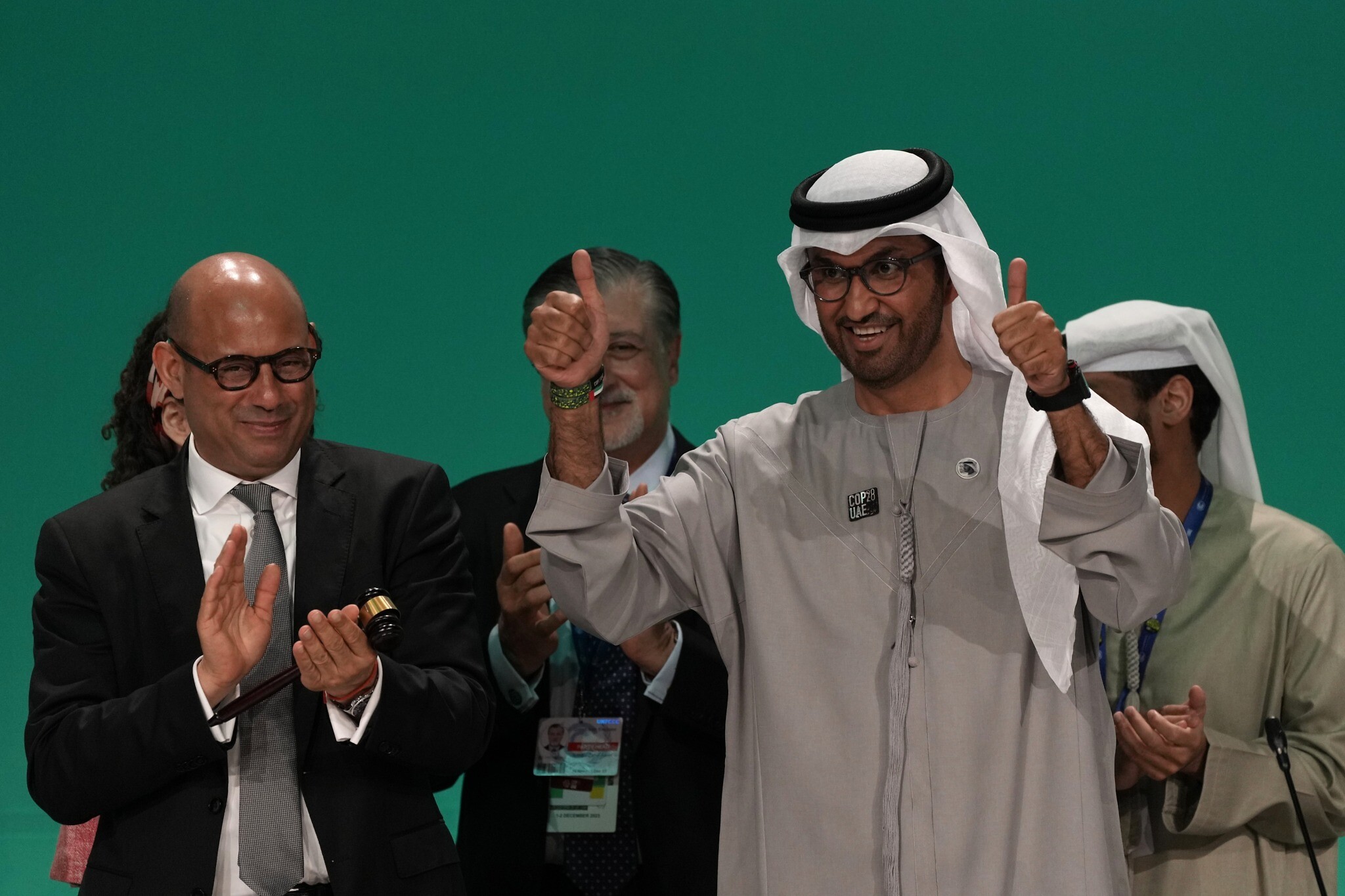



Is there any reason to be optimistic about the planet’s future following the annual international COP28 climate conference, which ended earlier this month?
The glitzy event, held in petro-rich Dubai, reflected US climate czar John Kerry’s oft-repeated mantra that the world must work with the big emitters to get rid of fossil fuels. It’s the burning of those fuels that is driving global warming and wreaking havoc on weather systems and biodiversity.
But, like last year’s climate shindig in the Egyptian resort city of Sharm el-Sheikh, it was the big producers of oil and gas who arguably had the upper hand, with the Saudis among those pushing hardest from behind the scenes to maintain the problematic status quo.
The Dubai confab’s president, who will lead global climate efforts for the coming year, heads the Abu Dhabi National Oil Company. This year’s conference broke records for the number of oil and gas industry lobbyists present — 2,456 of them, according to The Guardian — nearly four times higher than at Sharm el-Sheikh. As the conference drew to a close, the head of the powerful oil producers’ club OPEC reportedly urged its members not to allow any language in its final declaration that would phase out, or phase down, the use of fossil fuels.
Next year’s confab will take place in Azerbaijan, whose oil and gas exports comprise 90 percent of all exports.
In light of big oil’s role, there was little surprise that the non-legally binding COP28 final declaration was widely criticized as far too weak.
Following agonized discussions over the wording, the declaration did call for “moving away” from coal, oil and gas, although it was not the “phase-out” during this decade that many had hoped for, and it contained many loopholes. In a move that primarily reflected the glacial pace of global climate action, it also mentioned the term fossil fuels for the first time since the COPs began.
But as Israel’s Environmental Protection Ministry official Ayelet Rosen told a briefing earlier this week, “the success of COP depends on your expectations.”
All those at the briefing, including former Knesset lawmaker Dov Khenin, who heads the President’s Climate Forum, agreed that the obligation of all countries to upgrade their climate targets and submit them to the UN by the beginning of 2025 would allow Israeli environment activists to press harder for policy changes.
At present, Israel is committed to cutting its global warming emissions by 27% by 2030, relative to 2015.
Rosen, who heads the ministry division responsible for multilateral environmental agreements, and who has been sitting through the negotiations, added: “Over the years, the negotiations have become less important and the grand meeting of civil society, solution providers and declarations that the presidency promotes — which are not legally binding but set the stage for future activities — have become more important. That might be all that one can hope for at a COP where 197 countries have to agree by consensus.”
Israel had been due to send a large delegation to this year’s COP. But after the Hamas terror group’s massive onslaught in southern Israel on October 7 and the ensuing war, Israelis were advised to avoid non-essential travel to many areas abroad, including most of the Middle East.
Barely a couple of dozen Israeli officials went to Dubai.
One person who did attend was solar energy entrepreneur Yossi Abramowitz. Talking as an environmental activist rather than a businessman, Abramowitz told this week’s briefing that COP28 was a win for maintaining the status quo.
To continue making billions of dollars from oil and maintain $7 trillion in global fossil fuel subsidies, the “savvy” Emiratis had sought to project progress by bringing in a record number of attendees, he said.
In addition, they had pledged $30 billion to leverage a new climate fund, which would go toward some beneficial goals but distract attention from the need to slash fossil fuels, Abramowitz added.
Like other speakers at the briefing, he noted the Emiratis’ focus on what he called “the messianic technologies” that oil producers were touting as solutions to climate change, such as nuclear power, green hydrogen (hydrogen powered by renewable energy), and carbon capture and storage — removing carbon from the atmosphere and burying it deep in the earth or sea. “I met with the chief scientist of one of the climate funds, who said by the time these are economically viable, it’ll be too late,” Abramowitz said.
“Right now, it seems that the narrow financial interests of the fossil fuel industry have taken over,” said Tami Ganot, deputy CEO of the environmental advocacy organization Adam Teva V’Din.
“If we look at what the science is saying and the climate calamities happening worldwide, we are still not up to the task.”
The Foreign Ministry’s climate envoy, Ambassador Gideon Behar, said he preferred to look at the positive side of COP28’s outcomes.
These were a reiteration of the need to keep global warming within 1.5 degrees Celsius (2.7° Fahrenheit) compared with pre-industrial times (the world has already warmed by 1.4° C), a commitment to “transition away” from fossil fuels, a push to triple renewable energy provision and double energy efficiency by 2030, and the establishment both of a loss and damage fund to help developing nations deal with climate threats and an early warning system for climate disasters in every country.
The session was organized via Zoom by Prof. Alon Tal, Tel Aviv University’s chair of public policy.






